Romantic 3-Day Food, Wine & Relaxation Journey in Undiscovered Majorca
Majorca, Spain
3 days





About Majorca, Spain
Experience the enchanting island of Majorca, Spain's largest Balearic Island. Known for its stunning beaches, azure Mediterranean waters, and majestic mountains, Majorca offers a diverse landscape for every traveler. Explore the historic Palma de Majorca, with its Gothic cathedral and bustling markets, or unwind in the tranquil hilltop towns of Valldemossa and Deià. Enjoy the vibrant nightlife in Magaluf, or immerse yourself in the traditional Spanish culture in the quaint villages. Indulge in delicious local cuisine, featuring fresh seafood and world-class wines. With its perfect blend of natural beauty, rich history, and lively atmosphere, Majorca promises an unforgettable Spanish holiday.
3-Day Itinerary
Day 2
Hiking in the Serra de Tramuntana and Exploring Sóller
Morning
Start your day with a visit to the Serra de Tramuntana. This mountain range offers stunning views and numerous hiking trails. Take a leisurely hike and enjoy the natural beauty of the area.
Lunch
Enjoy a picnic lunch in the mountains. Pack some local cheeses, bread, and wine for a truly Majorcan experience.
Afternoon
Spend the afternoon exploring the charming town of Sóller. This town is known for its beautiful architecture and vibrant market. Don't forget to try the local orange ice cream.
Dinner
For dinner, enjoy a meal at a traditional Majorcan restaurant. Try some local dishes such as tumbet (a vegetable dish) or frit mallorquí (a meat dish).
Evening
End your day with a visit to a local wine bar. Majorca is known for its excellent wines, so this is a great opportunity to sample some local varieties.
Day 3
Visiting Cap de Formentor and Pollença
Morning
Start your day with a visit to the stunning Cap de Formentor. This peninsula offers stunning views of the sea and the surrounding countryside. Take a leisurely walk and enjoy the natural beauty of the area.
Lunch
Enjoy a leisurely lunch at a beachside restaurant. Majorca is known for its fresh seafood, so this is a great opportunity to sample some local dishes.
Afternoon
Spend the afternoon exploring the charming town of Pollença. This town is known for its beautiful architecture and vibrant market. Don't forget to try the local pastries.
Dinner
For dinner, enjoy a meal at a traditional Majorcan restaurant. Try some local dishes such as paella or ensaimada (a sweet pastry).
Evening
End your day with a relaxing stroll along the beach. The beaches in Majorca are known for their stunning beauty and tranquility. This is the perfect way to unwind after a busy day.
Attractions in Itinerary (4)

1Valldemossa
Valldemossa is a picturesque village in the hills of the Tramuntana range, known for its charming streets, beautiful views, and the Royal Carthusian Monastery. It's also famous as the place where composer Chopin spent a winter.

2Deià
A small coastal village in the Serra de Tramuntana, which is full of charm and has attracted artists and writers for years. It offers stunning views of the Mediterranean and a tranquil atmosphere.

3Serra de Tramuntana
A mountain range along the northwest coast of Majorca. It's a UNESCO World Heritage site and a great place for hiking, cycling, and enjoying stunning views of the island.
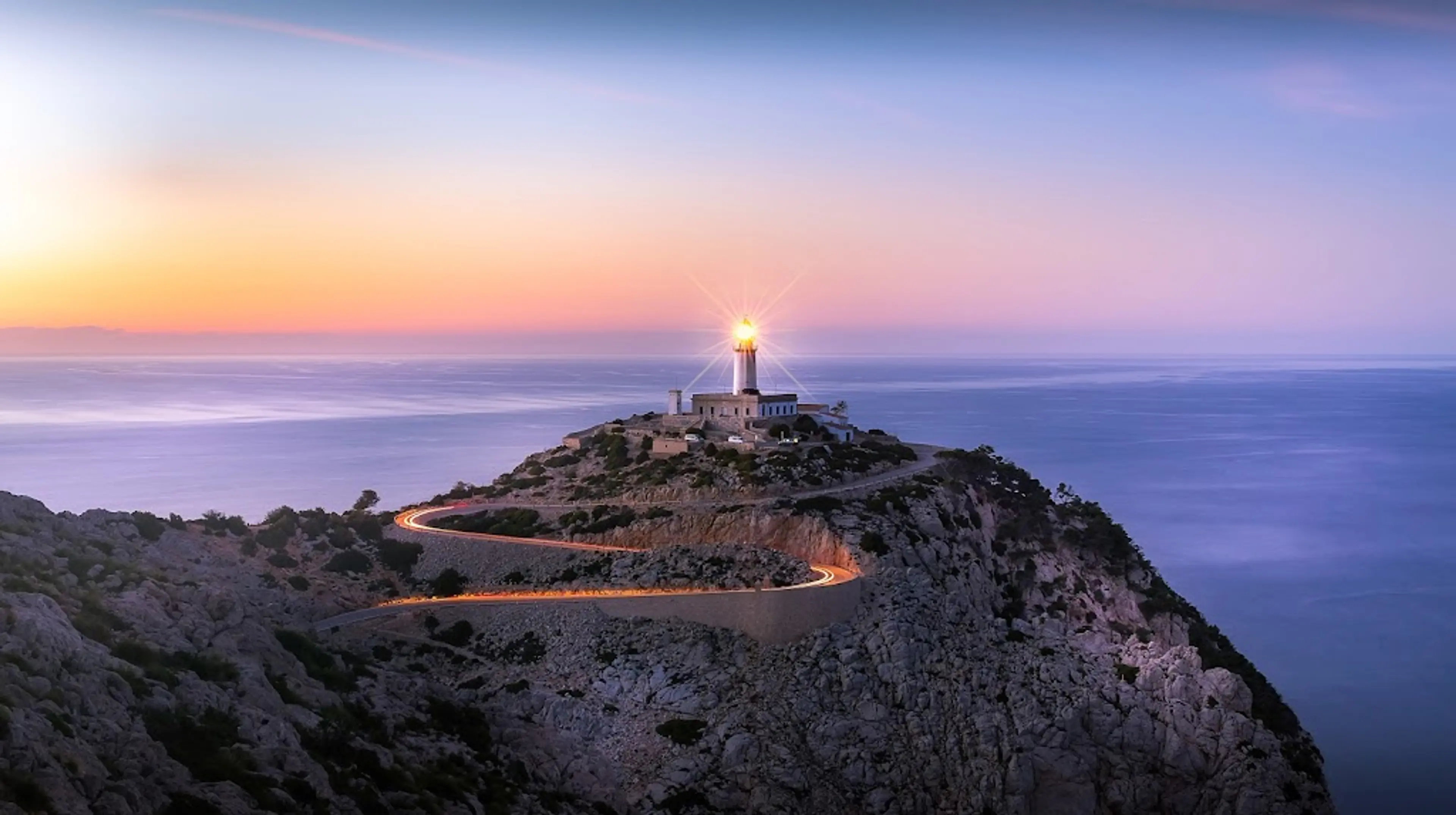
4Cap de Formentor
A dramatic cliffside viewpoint offering panoramic views of the sea and surrounding landscape.
Local Food and Drinks (10)

Ensaimada
A traditional pastry in Majorca, made with flour, water, sugar, eggs, and a type of lard called 'saim'. It is usually enjoyed for breakfast or dessert.
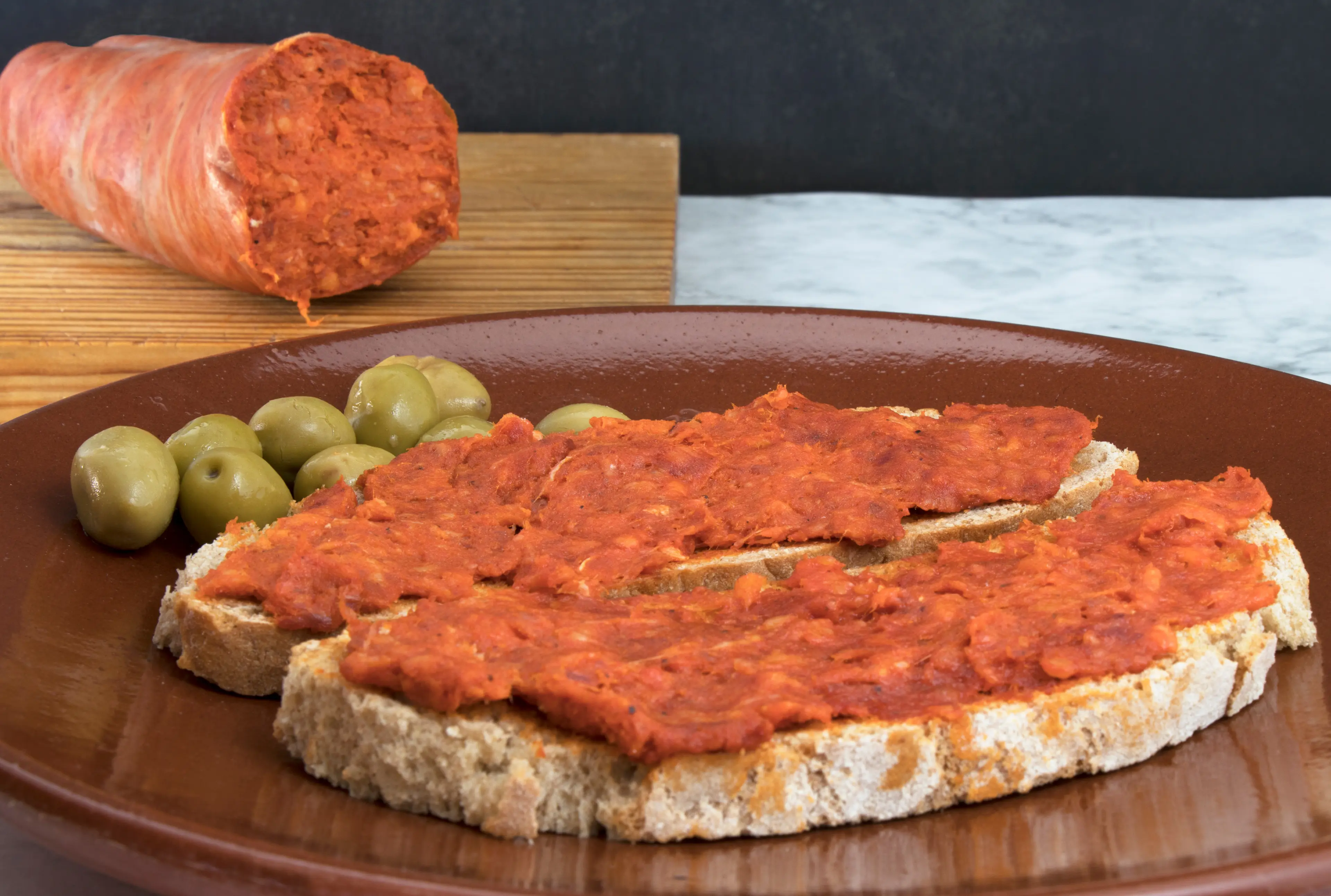
Sobrasada
A raw cured sausage, typical of the Balearic Islands. It is made from selected pork meat, seasoned with salt, paprika and black pepper.

Pa amb oli
A simple and traditional dish in Majorca, consisting of bread, usually 'brown bread', with garlic, ripe tomatoes, olive oil and salt.
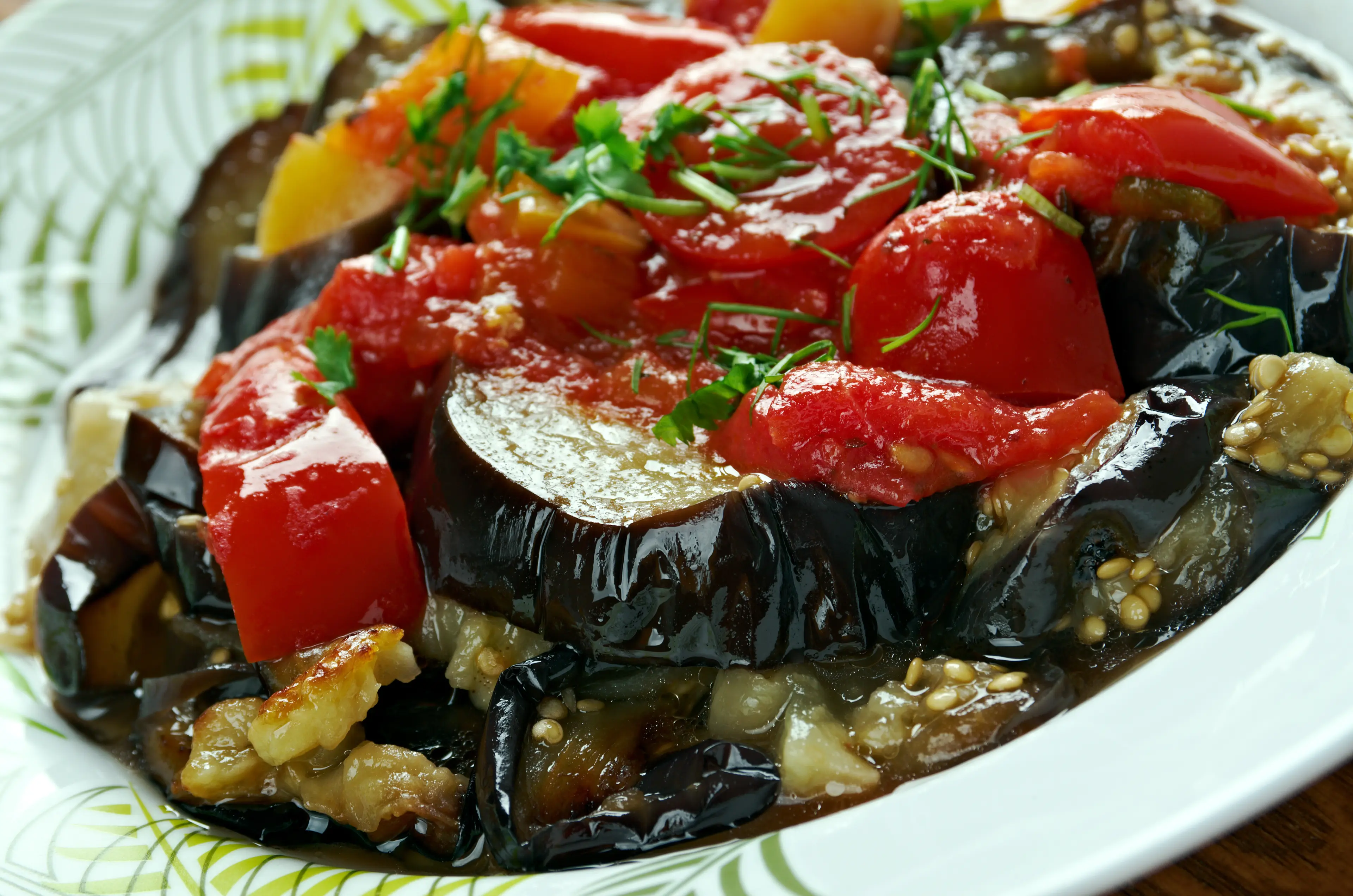
Tumbet
A traditional vegetable dish from Majorca. It is made with layers of sliced potatoes, aubergines and red bell peppers previously fried in olive oil.
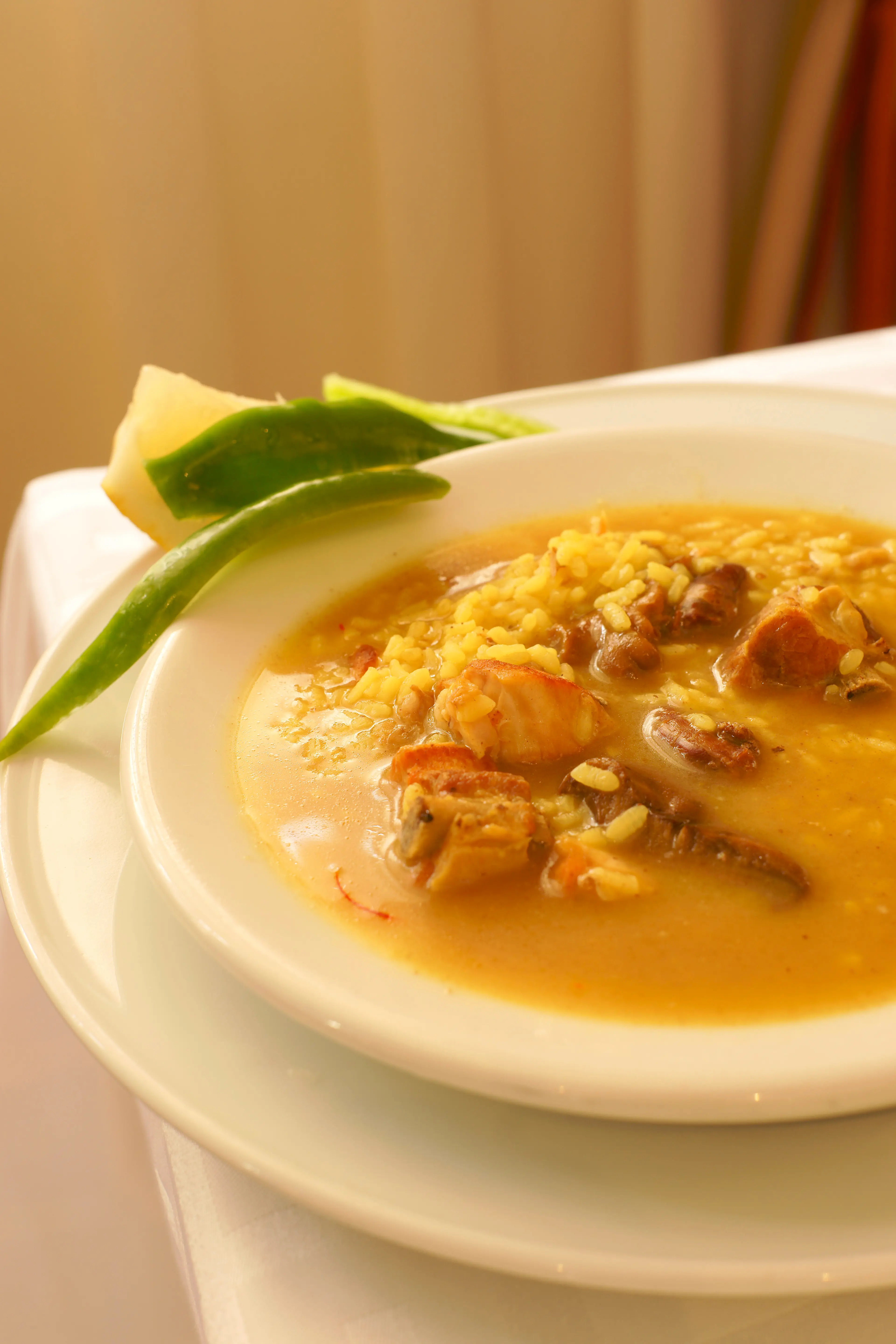
Arròs Brut
A traditional Majorcan rice dish cooked with rabbit, chicken, and a variety of local vegetables. The name translates to 'dirty rice' due to its dark color from the meat and vegetables.
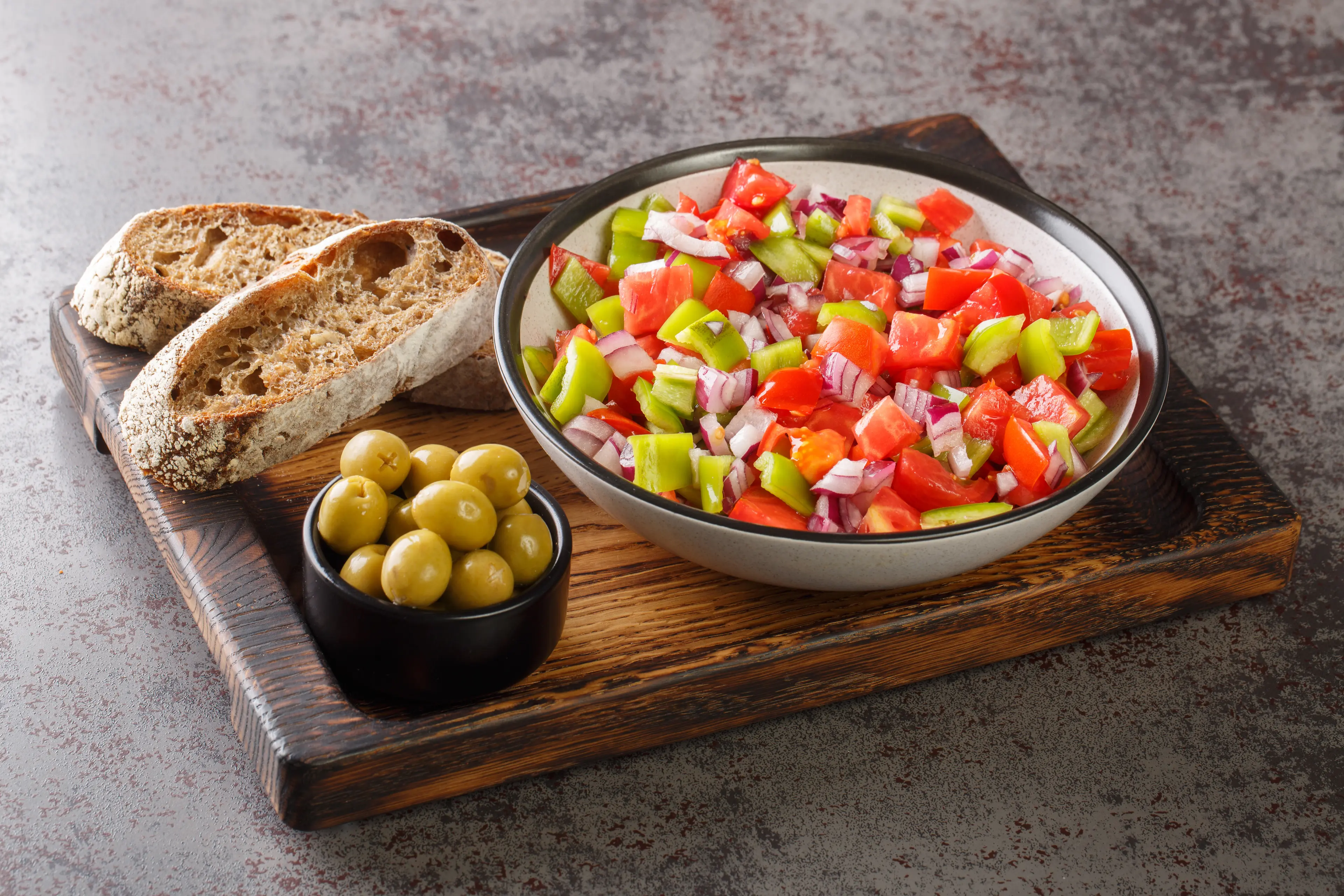
Trampo
A traditional Majorcan salad made with tomatoes, green peppers, and onions, dressed with olive oil and salt. It is often served as a side dish during the summer months.
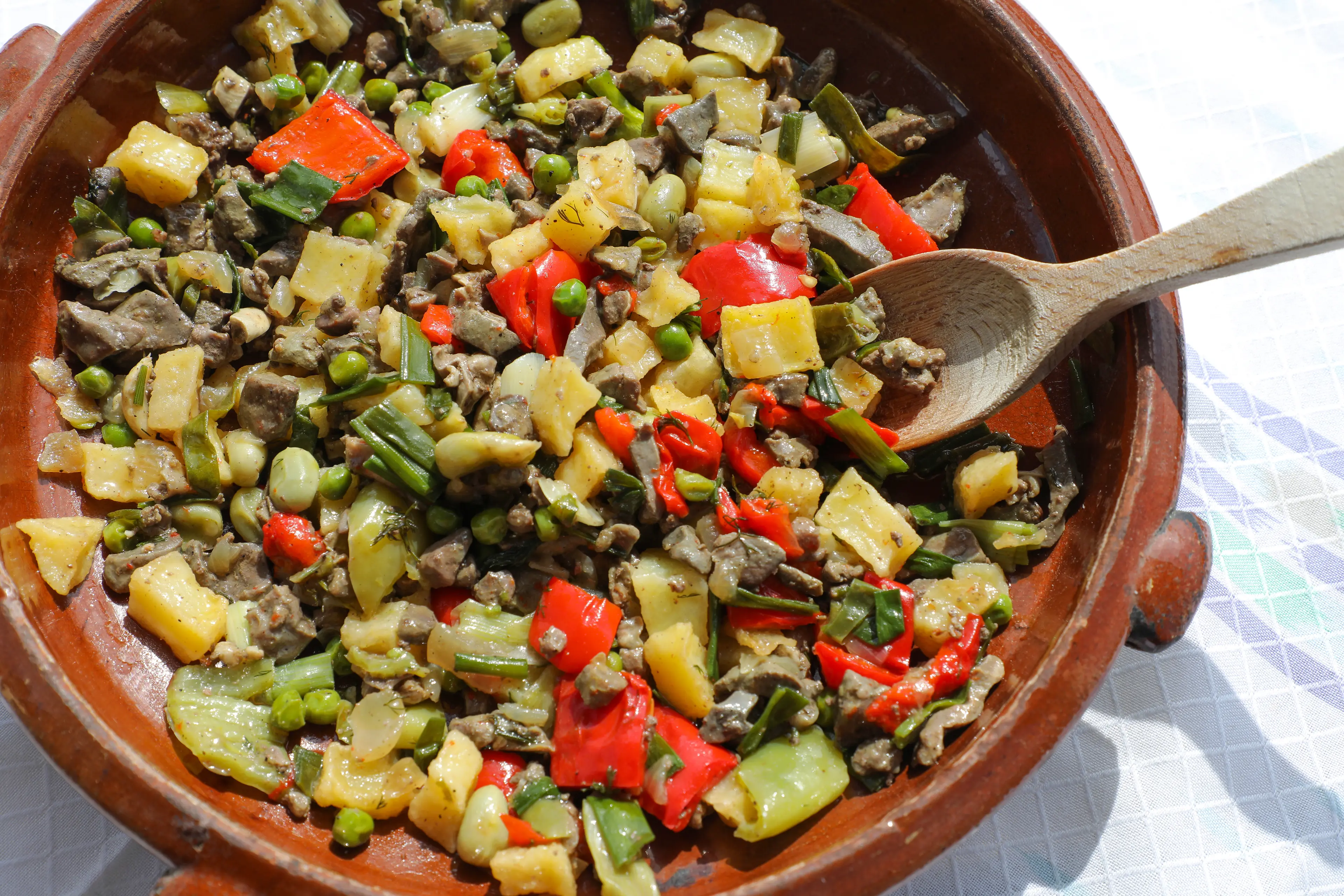
Frit Mallorquí
A traditional Majorcan dish made from offal, potatoes, and assorted vegetables, all fried together. It is often served as a tapa.

Herbes de Mallorca
A traditional Majorcan liqueur made from anise and other aromatic plants such as rosemary, thyme, and fennel. It is often served as a digestive after meals.
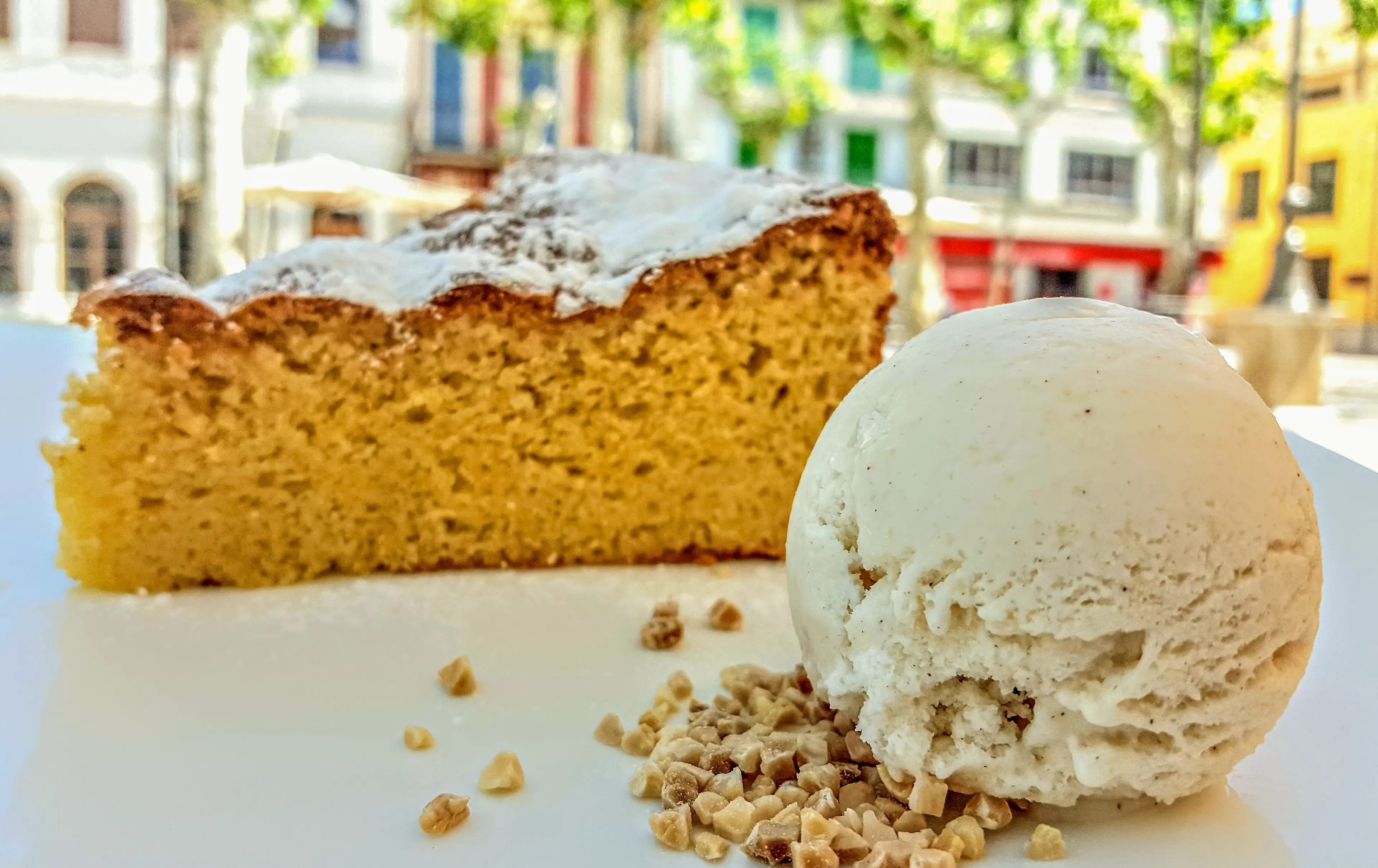
Almond Cake
A traditional Majorcan dessert made from almonds, sugar, eggs, and butter. Almonds are a common product of the island, making this cake a local favorite.
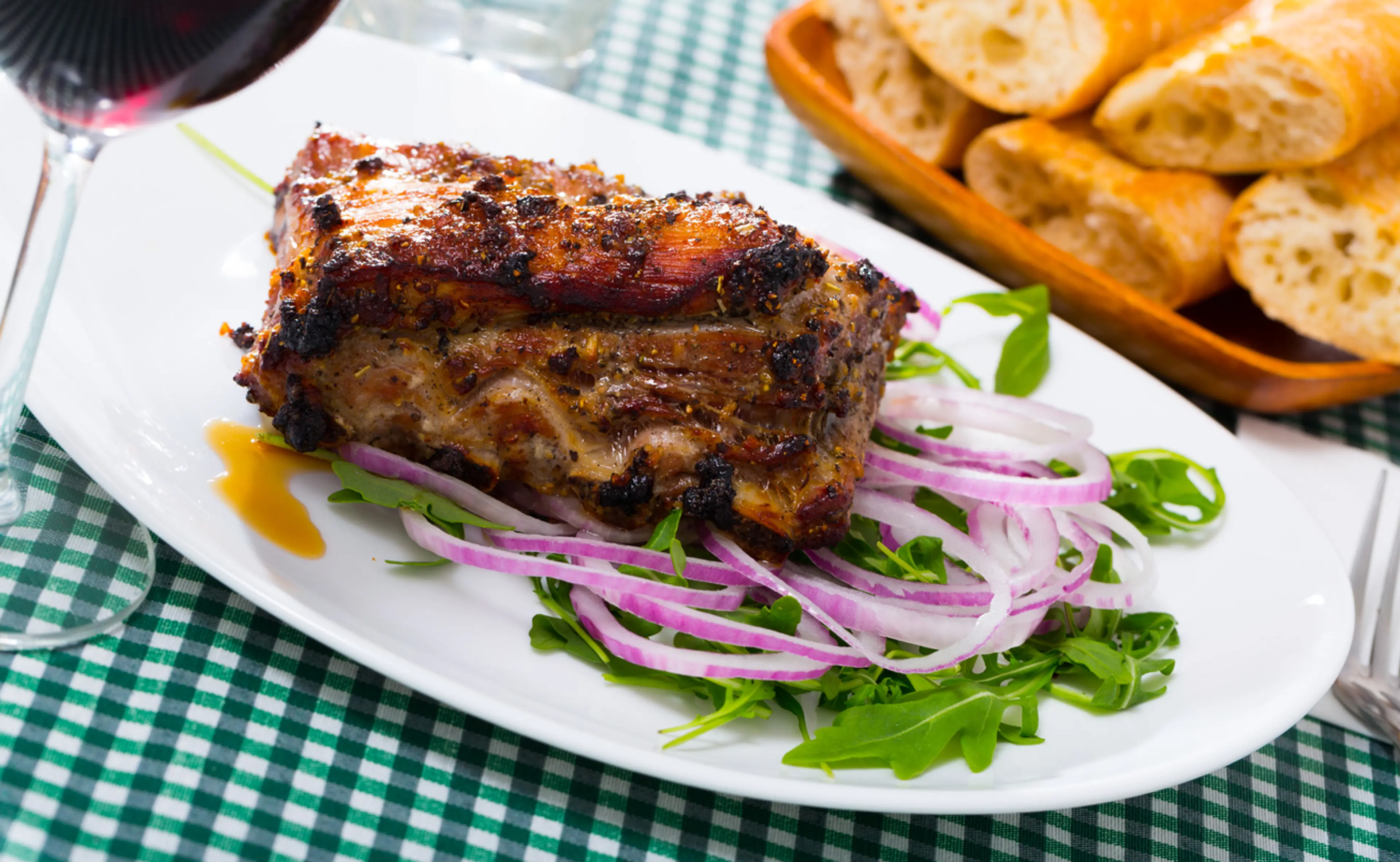
Porcella
A traditional Majorcan dish of roasted suckling pig. The pig is marinated with herbs and spices, then slow-roasted until tender and crispy.
Best time to visit
The best time to visit Majorca, Spain is typically between the months of April and October. During this period, the weather is warm and pleasant, perfect for beach activities and exploring the island. The peak tourist season is July and August, so if you prefer a quieter vacation, consider visiting in the shoulder months of April, May, September, or October. These months still offer great weather but with fewer crowds.
How to get around
Car Rental
Renting a car is a popular option for getting around Majorca. It provides the flexibility to explore the island at your own pace. There are numerous car rental companies available at the airport and in the main towns.
Bus
Majorca has an extensive bus network that connects the main towns and tourist areas. The buses are reliable and relatively frequent, making it a cost-effective way to travel around the island.
Bicycle
Majorca's diverse landscape makes it a popular destination for cycling. There are numerous bike rental shops across the island, offering everything from mountain bikes to road bikes. It's a great way to explore the island's scenic routes.
Taxi
Taxis are readily available in Majorca, especially in the main towns and tourist areas. They can be hailed on the street, booked in advance, or picked up from designated taxi ranks.
Train
There are two train lines in Majorca. One connects Palma to Inca, Sa Pobla and Manacor, while the other is a vintage train that runs from Palma to Soller. The train is a comfortable and scenic way to travel around the island.
Ridesharing
Ridesharing services like Uber are not currently available in Majorca. However, there are local apps like Taxi Click Mallorca that offer similar services.
Ferry
Ferries operate between Majorca and the other Balearic Islands, as well as the mainland. It's a great way to explore the surrounding islands or take a day trip to Barcelona.
Motorcycle/Scooter Rental
Renting a motorcycle or scooter is a fun and convenient way to explore Majorca. There are numerous rental shops across the island, offering a range of vehicles to suit different skill levels.
Foot
Many of Majorca's towns and resorts are compact and pedestrian-friendly, making walking a viable option for getting around. It's also a great way to take in the island's beautiful scenery and discover hidden gems.
Hiking
Majorca's diverse landscape, with its mountains, coastal paths and rural trails, makes it a paradise for hikers. There are routes to suit all levels of fitness and experience.
Boat
Boat trips are a popular way to explore Majorca's stunning coastline. There are numerous companies offering everything from short excursions to full-day cruises.
Important information
Currency€ EUR
Time zoneUTC+1
Driving sideRight
Emergency phone112
Drinking waterYes
Power sockets
Voltage230 V
Things to know about Majorca, Spain as a first time visitor
1
Majorca is part of the Balearic Islands, which are an autonomous community of Spain.
2
The official languages are Catalan and Spanish, but English is widely spoken in tourist areas.
3
The local currency is the Euro (€). Credit cards are widely accepted, but it's always good to carry some cash for smaller establishments.
4
Majorca operates on Central European Time (CET) and observes daylight saving time.
5
The island has a Mediterranean climate, with hot, dry summers and mild, wet winters. Average summer temperatures range from 70°F to 85°F (21°C to 29°C), while winter temperatures range from 40°F to 60°F (4°C to 15°C).
6
The peak tourist season is from June to August. If you prefer a quieter visit, consider traveling in the shoulder seasons of spring (April to June) and fall (September to November).
7
Tipping is customary in Majorca. It's typical to leave a 10-15% tip in restaurants and round up to the nearest Euro for taxi drivers.
8
Majorca has a well-developed public transportation system, including buses, trains, and ferries. Renting a car is also a popular option for getting around the island.
9
The island is known for its traditional cuisine, which includes dishes like 'tumbet' (a vegetable casserole), 'sobrasada' (a type of sausage), and 'ensaimada' (a sweet pastry).
10
Majorca is a popular destination for outdoor activities, including hiking, cycling, and water sports.
11
The island has a vibrant nightlife, particularly in the capital city of Palma and the resort town of Magaluf.
12
Majorca is generally safe for tourists, but as with any travel destination, it's important to be aware of your surroundings and take precautions against pickpocketing and other petty crimes.
13
The island has a mix of sandy beaches and rocky coves. Be sure to bring appropriate footwear if you plan to explore the latter.
14
Tap water is safe to drink in Majorca, but it has a high mineral content that some people find unpleasant. Bottled water is widely available.
15
Majorca has a rich history and culture, with influences from the Romans, Moors, and Christians. You'll see this reflected in the architecture, festivals, and local customs.
16
The island has a range of accommodation options, from luxury resorts to budget hostels and vacation rentals.
17
If you're planning to visit religious sites, be sure to dress modestly out of respect for local customs.
18
Majorca has a number of local markets where you can buy fresh produce, local crafts, and other goods. These are typically held in the mornings.
19
The island's healthcare system is of a high standard. European Union citizens should bring their European Health Insurance Card (EHIC) for free or reduced-cost treatment.
20
Majorca operates on a 230V supply voltage and 50Hz. The power sockets are of type F. If your appliances use a different type, you'll need a plug adapter.
Basic Catalan to know as a first time visitor
English phrase | Native phrase | Pronunciation | When to use it |
|---|---|---|---|
Hello | Hola | O-la | Greeting someone |
Goodbye | Adiós | A-dee-os | Leaving or saying goodbye to someone |
Please | Por favor | Por fa-vor | When asking for something |
Thank you | Gracias | Gra-see-as | When someone helps you or gives you something |
Yes | Sí | See | Agreeing with someone or something |
No | No | No | Disagreeing with someone or something |
Excuse me | Perdón | Per-don | Getting someone's attention or apologizing |
I'm sorry | Lo siento | Lo see-en-to | Apologizing |
Do you speak English? | ¿Hablas inglés? | Ab-las in-gles | When you need to communicate in English |
I don't understand | No entiendo | No en-tee-en-do | When you don't understand what is being said |
Where is the bathroom? | ¿Dónde está el baño? | Don-de es-ta el ban-yo | When you need to use the bathroom |
How much does it cost? | ¿Cuánto cuesta? | Kwan-to kwes-ta | When you want to know the price of something |
I would like... | Me gustaría... | Me gus-ta-ree-a | When you are ordering food or a service |
Help! | ¡Ayuda! | A-yu-da | When you need help |
Call the police! | ¡Llama a la policía! | Ya-ma a la po-lee-see-a | When you need the police |
I'm lost | Estoy perdido | Es-toy per-dee-do | When you can't find your way |
Can I have the menu, please? | ¿Puedo tener el menú, por favor? | Pwe-do te-ner el me-nu, por fa-vor | When you want to see the menu at a restaurant |
Water | Agua | A-gwa | When you want to order water |
Beer | Cerveza | Ser-ve-za | When you want to order beer |
Wine | Vino | Vee-no | When you want to order wine |
Packing List
Clothing
Underwear (3 pairs)
Socks (3 pairs)
T-shirts (3)
Shorts (2 pairs)
Swimwear
Lightweight jacket or sweater
Comfortable walking shoes
Flip flops or sandals
Pajamas
Hat or cap for sun protection
Toiletries
Toothbrush and toothpaste
Shampoo and conditioner
Body wash or soap
Deodorant
Razor and shaving cream
Sunscreen
After-sun lotion
Lip balm with SPF
Travel-size first aid kit
Prescription medications
Contact lenses and solution (if needed)
Travel documents and essentials
Passport or ID
Airline tickets or e-tickets
Hotel reservation confirmations
Travel insurance documents
Credit and debit cards
Cash in local currency (Euros)
Emergency contact information
Electronics and gadgets
Smartphone
Charger for smartphone
Headphones
Camera
Charger for camera
Power adapter (Spain uses type F plug)
Portable power bank
Miscellaneous items
Travel guidebook for Majorca
Spanish phrasebook or language app
Reusable water bottle
Snacks for the journey
Travel pillow and eye mask
Beach towel
Sunglasses
Backpack or daypack
Umbrella or lightweight rain jacket
Weather Conditions
Majorca, Spain is known for its Mediterranean climate, which means it experiences hot, dry summers and mild, wet winters. If you're planning to visit Majorca during the summer months, from June to August, you can expect average high temperatures around 86°F (30°C). It's the perfect time for beach activities and water sports, but remember to stay hydrated and use sun protection, as the sun can be quite strong. The shoulder seasons, spring (March to May) and autumn (September to November), are also great times to visit. Temperatures during these periods range from 68°F to 77°F (20°C to 25°C), which is ideal for outdoor activities like hiking and sightseeing. Rainfall is relatively low, but it's always a good idea to check the forecast and carry a light rain jacket just in case. Winter in Majorca, from December to February, is mild compared to many other European destinations. Average high temperatures range from 59°F to 61°F (15°C to 16°C). While it's not beach weather, it's still comfortable for exploring the island's towns and countryside. However, keep in mind that this is the wettest time of the year in Majorca, so pack an umbrella or waterproof clothing. Regardless of when you visit, it's always a good idea to check the local weather forecast before your trip to ensure you pack appropriately. Also, remember that weather can change quickly, especially in the shoulder and winter seasons, so be prepared for a variety of conditions.
| Month | Hi / Lo (°C) | Weather Overview |
|---|---|---|
January | 15° / 8° | January is the coldest month in Majorca, but it's still relatively mild with an average high of 15°C. It's a great time to visit if you prefer cooler weather and fewer tourists. |
February | 16° / 8° | February sees a slight increase in temperature, with highs of 16°C. It's still off-peak season, so you can enjoy the island's attractions without the crowds. |
March | 18° / 10° | March marks the beginning of spring in Majorca, with temperatures ranging from 10°C to 18°C. The island starts to get busier, but it's still less crowded than the summer months. |
April | 20° / 12° | April is a pleasant month to visit Majorca, with temperatures averaging between 12°C and 20°C. The weather is perfect for outdoor activities like hiking and cycling. |
May | 24° / 16° | May is a fantastic time to visit Majorca, with warm temperatures ranging from 16°C to 24°C. The island is in full bloom and the tourist season is in full swing. |
June | 28° / 20° | June is the start of the hot summer season in Majorca, with temperatures hitting highs of 28°C. It's a great time for beach activities and water sports. |
July | 31° / 23° | July is the hottest month in Majorca, with temperatures soaring up to 31°C. It's the perfect time for sunbathing, swimming, and enjoying the vibrant nightlife. |
August | 31° / 23° | August is equally hot as July, with temperatures ranging from 23°C to 31°C. The island is bustling with tourists, making it a lively time to visit. |
September | 28° / 20° | September sees a slight drop in temperature, but it's still warm with highs of 28°C. It's a great month to visit if you prefer a less crowded and slightly cooler environment. |
October | 24° / 16° | October marks the start of autumn in Majorca, with temperatures ranging from 16°C to 24°C. The weather is still pleasant for beach activities and sightseeing. |
November | 20° / 12° | November sees a further drop in temperature, with highs of 20°C. It's a quieter time to visit, perfect for those who prefer a more relaxed holiday. |
December | 18° / 10° | December is a cooler month in Majorca, with temperatures averaging between 10°C and 18°C. It's a great time to enjoy the island's Christmas festivities and mild winter weather. |
Did you know?
Places near by Majorca, Spain

Valldemossa
A beautiful village in the mountains with a rich history.

Soller
A town known for its historic tramway and beautiful port.

Cap de Formentor
A stunning peninsula and lighthouse offering panoramic views.

Palma de Mallorca
The capital city of Mallorca, known for its beaches, old town, and nightlife.

Ibiza
A beautiful island known for its lively nightlife and stunning beaches.

Barcelona
A vibrant city known for its art, architecture, and beach.

Valencia
A city known for its City of Arts and Sciences, with futuristic structures including a planetarium, an opera house, and a museum of natural sciences.